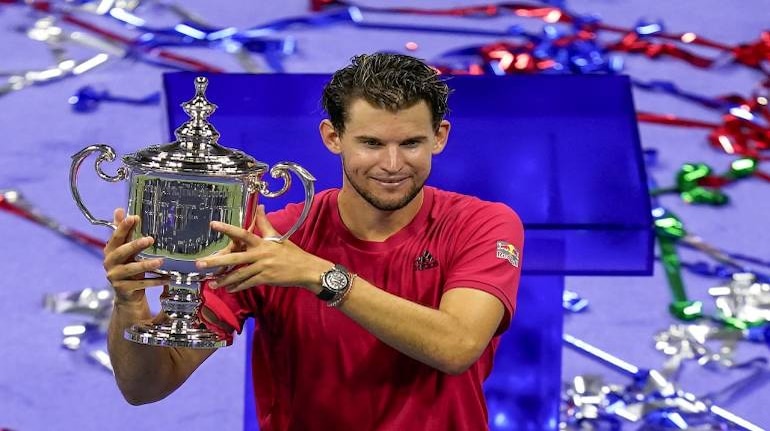
Thiem, Red Bull and the unusual dietary choices of athletes
Dominic Thiem sipped Red Bull during his victorious US Open campaign. At the 2003 World Cup, Sachin Tendulkar had ice cream for lunch. Many times, athletes consume items a nutritionist may frown at
by Akshay SawaiIn a world full of prophets of doom warning you about the side effects of everything you eat or drink, it was interesting to see Dominic Thiem sipping Red Bull during his march to the US Open crown.
Athletes are particular about what they consume. Yet if something ostensibly unhealthy makes them feel good and is within rules, they are not averse to it.
“Sometimes it (Red Bull) helps me a lot on court, so I want to have it,” Thiem said.
Red Bull is one of Thiem’s sponsors. That is not the point. The point is he trusted his instincts to make an unconventional choice of energy replenishment. (Surely after due diligence and getting an all-clear from his trainers.)
Athletes are tuned in to their mind and bodies. When they crave something, they heed the signal. During last year’s sofa cushion-biting World Cup final between England and New Zealand, in the frantic moments before the Super Over, man-of-the-match Ben Stokes did not have kale juice or gluten free cereal. He smoked a cigarette.
In Morgan's Men: The Inside Story of England's Rise from Cricket World Cup Humiliation to Glory, a book on England’s triumph, authors Nick Hoult and Steve James, wrote, “He [Stokes] is covered in dirt and sweat. He has batted for two hours and 27 minutes of unbelievable tension. What does Stokes do? He goes to the back of the England dressing room, past the attendant's little office and into the showers. There he lights up a cigarette and has few minutes on his own."
Nourishment during a game is often about realising what nutrient is needed more and avoiding the rest. During India’s tense encounter against Pakistan at the 2003 World Cup, Sachin Tendulkar, about to open the innings against an attack comprising Waqar Younis, Wasim Akram and Shoaib Akhtar, had a large bowl of ice cream for lunch.
“At lunch time I only had ice-cream. I had my headphones on, and didn't want to listen to anyone. I had told my teammates, when the umpires walk out, please let me know,” Tendulkar said while remembering the match some years later.
The ice-cream delivered. Tendulkar made 98 and India won a game which is tattooed in the memory of millions.
Nutritionists all over the world wept they saw Usain Bolt’s diet plan during the 2008 Beijing Olympics, where the effervescent Jamaican sprinter won three sprint golds. Bolt had chicken nuggets for breakfast, lunch and dinner. He estimated he ate around 1,000 chicken nuggets over 10 days in Beijing. That’s a 100 a day. Just typing this has increased the keyboard's cholesterol.
Ironically, Bolt’s poultry binge was driven by concern for his system and not disregard for it. He couldn’t handle the local food and reliable old McDonald’s was all he could trust. You read that right.
“Honestly, I ate nothing else in all my time out in China except chicken nuggets,” Bolt wrote in an autobiography named Fastest Man Alive. “They were the only food I could properly trust which wouldn’t affect my stomach. On arriving at the [pre-Olympic] training camp I’d tried a local Chinese meal, which wasn’t like the ones we eat in the West, and my body didn’t react well. So, knowing I could rely on nuggets, I made up my mind that was all I would eat. And eat them I did, for breakfast, lunch and dinner, washed down with bottled water.”
Tennis great Pete Sampras won everything but the French Open in his career. Played on slow clay in Paris, the tournament is the most physically demanding of the game’s four Majors. Sampras, who had thalassemia minor, struggled in the conditions. In 1996, though, he reached the semis and had a bit of a chance to fill the only gap in his resume.
In the hours before the match, Sampras developed a craving for pizza. Thinking it would be a wrong idea to have one, he did not give in to the want. In the semifinal, he was a shadow of himself and lost easily. Later, he said he should have had the pizza as it was his body’s way of telling him, "Houston, we have a problem."
No such regrets for Dominic Thiem.